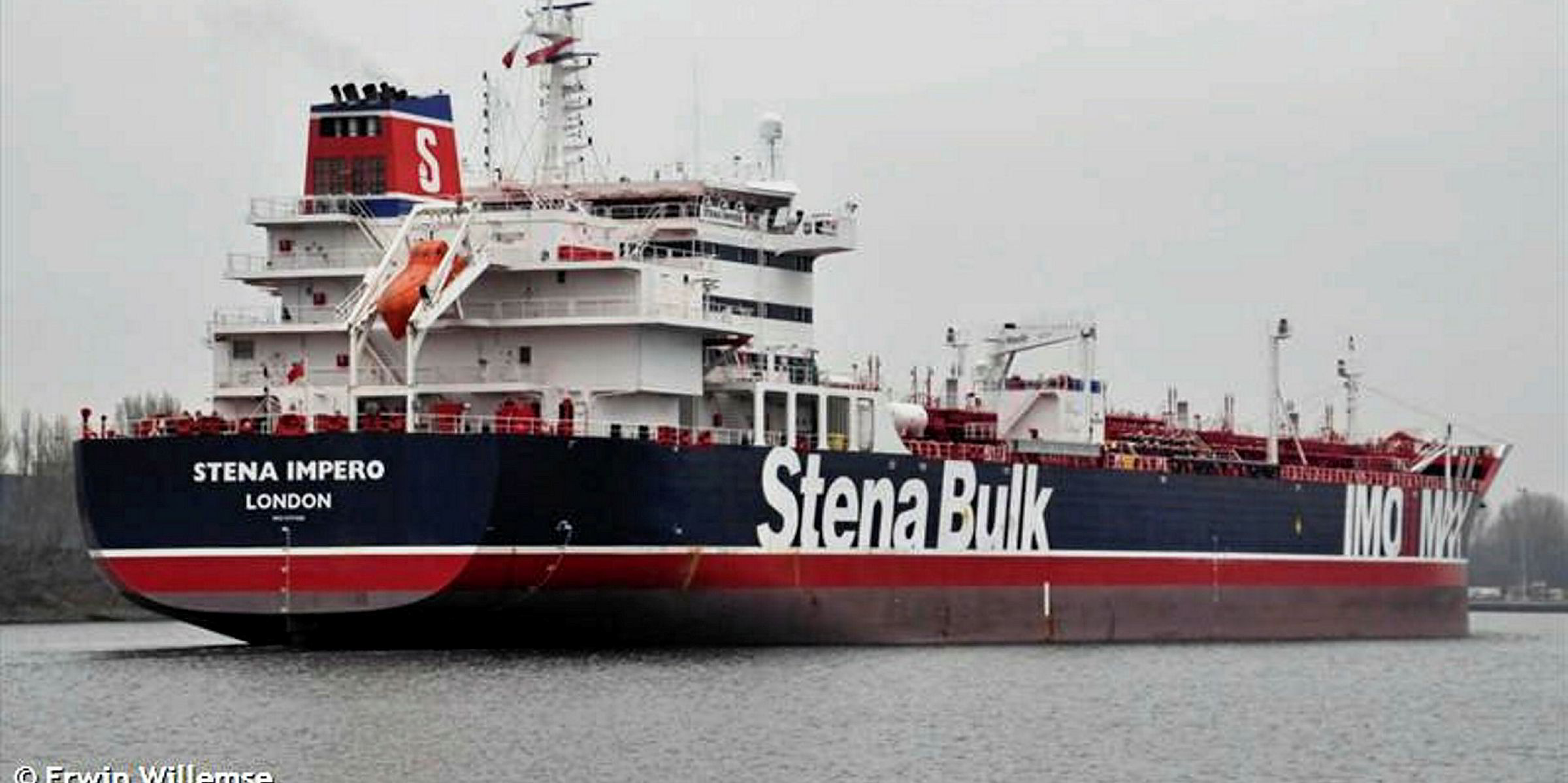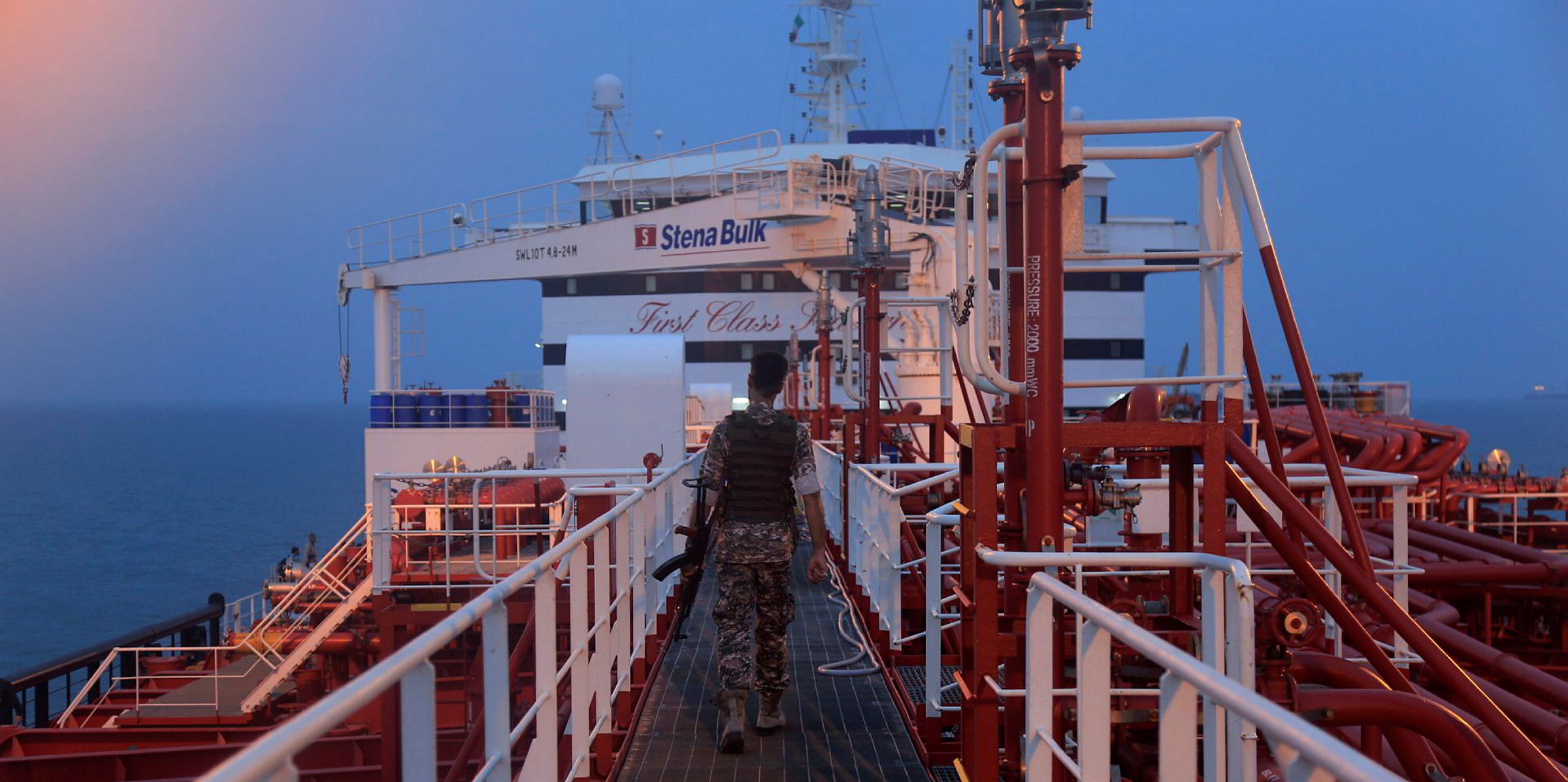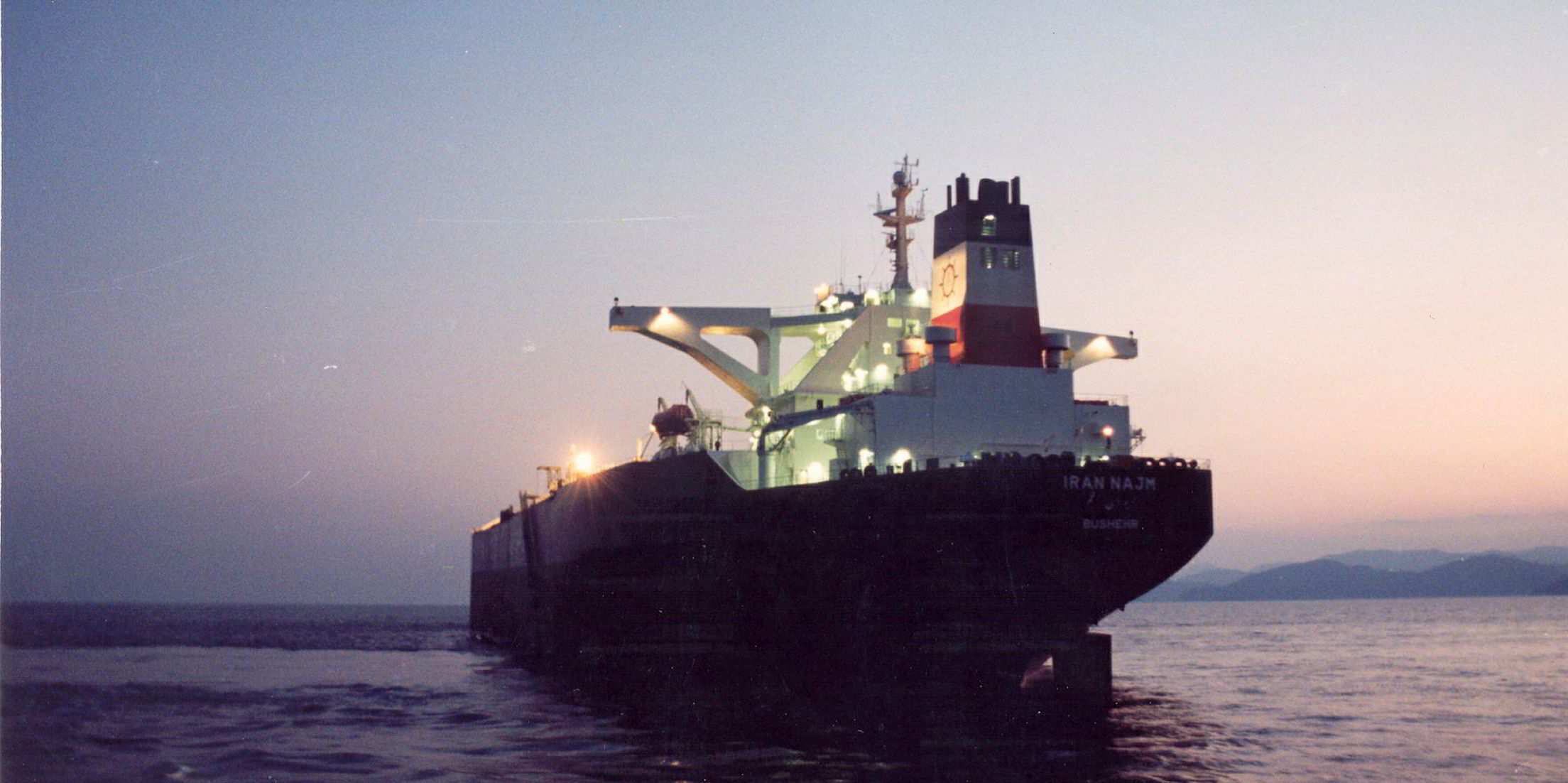Tanker earnings are unlikely to receive a boost from the escalation of tension between the UK and Iran even as insurance premiums will be poised for further increases, according to market participants.
Following Iran’s seizure of the UK-flagged product tanker Stena Impero (built 2018) last Friday, the UK government has urged all British vessels to avoid operating in the Strait of Hormuz.
Several analysts point out earnings would see little impact from the withdrawal of British tonnage, which accounts for a small portion of the trading fleet.
“Iran’s targeting of UK-linked ships would unlikely squeeze tanker supply in the region,” Braemar ACM said.
“Middle East fixing activity is going on as usual for non-UK flagged shipowners.”
According to VesselsValue data, 79 tankers flagged in the UK, a British Overseas Territory or a British Crown Dependency have operated in the Middle East Gulf year-to-date.
In the same timespan, 88 tankers owned by entities from those areas have operated in the Gulf.
This compares with a total of 2,234 tankers that have called in this region in 2019.
“It isn’t an overwhelming number in any one segment,” VesselsValue analyst Court Smith told TradeWinds.
“There are far more Chinese flagged vessels calling in the Gulf, so they would benefit somewhat, but I think it is unlikely to have a significant bullish impact just based on the removal of UK flagged vessels alone.”
“I think the perception of rising risk might deter some owners...But it’s not like there are many other green pastures to run to right now as low rates are endemic to most load areas.”
More insurance costs

Drewry’s lead tanker analyst Rajesh Verma said charterers can easily find suitable alternatives, even if tankers with UK interests refrain from trading in the region.
“However, in my view the real problem is the escalating tension in the region which has increased the risk to the vessels passing through the Strait of Hormuz, triggering insurance premiums,” Verma said.
Jonathan Moss, head of transport and marine at law firm DWF, offered similar comments.
"The global insurance markets are accustomed to factoring geopolitical uncertainty into pricing models, nevertheless this geopolitical fallout has not been seen since 2003,” Moss said.
“In 2003, rates for hull and machinery, war risk cover for tankers in the Gulf increased significantly owing to the political instability in the region.”
"Given the hostility escalating, underwriters will also be closely scrutinising voyages on a case-by-case basis with premium increases covering vessels in the region a near certainty.”
“Ultimately, this uncertainty in the Gulf region is likely to lead insurers to raise premiums, renegotiate terms of cover and introduce riders to marine and energy contracts of insurance and reinsurance, in the face of a cocktail of instability in the region."
However, the development is not expected to hit tanker earnings for owners, as charterers have been willing to absorb additional war risks premiums since last week.
Instead, what has been pressuring the tanker market is the general oversupply of tonnage. Clarksons Platou assessed VLCC earnings at $14,200 per day as of Monday, down from $15,700 per day last Friday.
“There are too many ships around,” said a broker.






